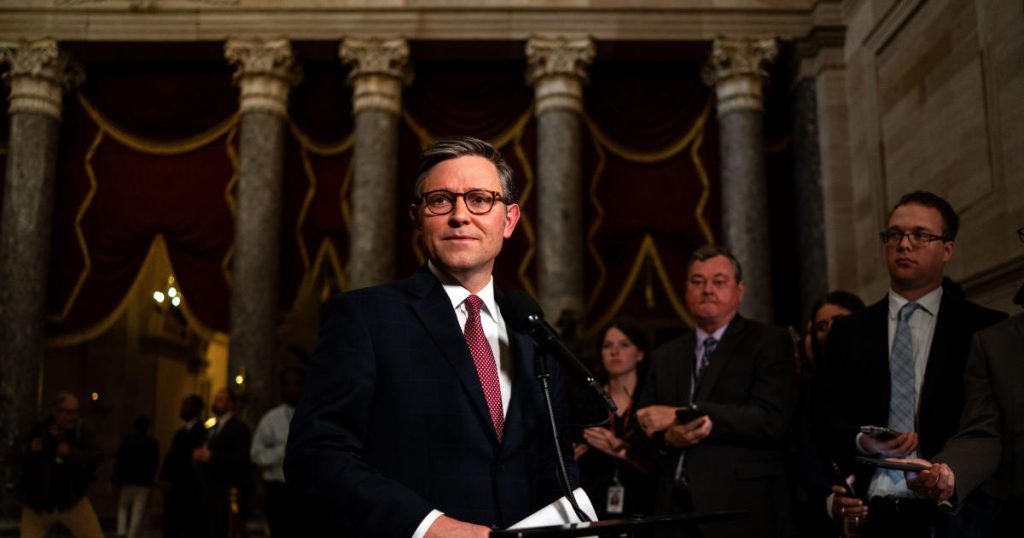House Speaker Mike Johnson announced that he would not support changing the rule that allows a single member to force a vote on whether to remove the speaker, despite acknowledging that the current threshold has harmed the office and the Republican majority. The current rule stems from a deal former House Speaker Kevin McCarthy made with hardliners in January 2023 and has caused tension within the party. Johnson stated that while many members have asked him to endorse a new rule to raise the threshold, he does not have the majority needed to make the change.
Conservative lawmakers have been upset with Johnson’s decisions as speaker, including his cooperation with Democrats and his handling of foreign aid to Ukraine. Some lawmakers threatened to force a snap referendum on Johnson, but changing the threshold would have further upset conservatives. Rep. Marjorie Taylor Greene criticized Johnson for considering changing the rules, comparing his actions to a betrayal of Republican voters. Rep. Matt Gaetz also expressed concerns about Johnson inserting language in a foreign aid legislation that would make it harder to oust him, leading to further tensions within the party.
Despite facing pressure from conservative lawmakers, Johnson said he would continue to govern under the existing rules as he lacks the majority needed to change them. Rep. Lauren Boebert of Colorado stated that increasing the threshold would lead her to support Johnson’s removal, indicating that this issue has become a red line for her. The debate over the motion to vacate and the threshold for ousting the speaker has exposed divisions within the Republican Party, with some members advocating for accountability and others expressing concerns about the impact on party unity.
The controversy surrounding the motion to vacate and the potential removal of Speaker Johnson highlights the challenges faced by the Republican Party in maintaining unity and leadership. The rift between conservative lawmakers and party leadership underscores deeper divisions within the GOP over strategy and priorities. Johnson’s handling of key issues, including foreign aid and cooperation with Democrats, has further exacerbated tensions within the party. The dynamics within the GOP are shifting, with different factions advocating for various approaches to governance and leadership.
The debate over the threshold for removing the speaker reflects broader debates within the GOP over accountability, decision-making, and party cohesion. The clash between lawmakers like Greene and Boebert, who are pushing for changes in leadership, and Johnson, who is asserting his authority as speaker, highlights the complexities of governing a diverse and fractious party. The outcome of this struggle could have significant implications for the Republican Party’s unity and effectiveness in the future. As tensions continue to simmer within the GOP, navigating these challenges will require skillful leadership and strategic decision-making to bridge the divides within the party.


